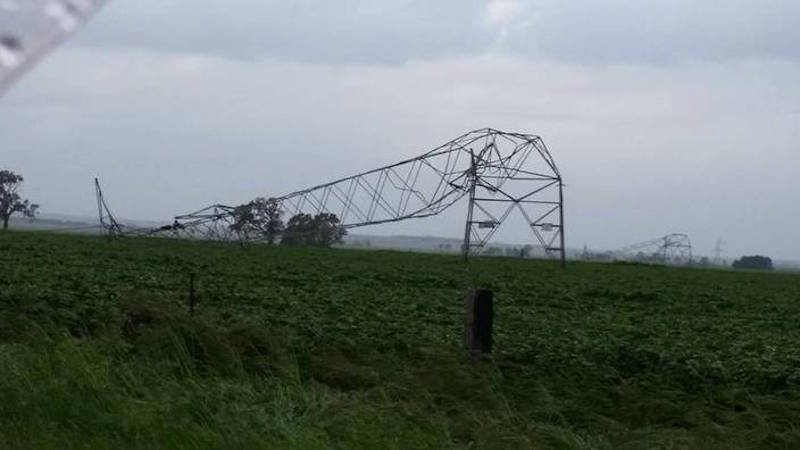When the sun is shining and the breeze trims the blades of the turbines, it’s easy to forget that Australia remains a country with a deep native suspicion of renewable energy.
How else to explain the extraordinary, unfounded response to a traumatic Wednesday for South Australians when a huge storm ripped through state and all the lights went out?
Before residents’ power was even returned politicians and journalists were lining up to suggest, with no evidence, that South Australia’s high concentration of renewable energy was in some way to blame for the crisis.
The nation’s papers of note were quick to find cause where there was none. By early evening on Wednesday, while people were still trying to negotiate their way home through the darkened Adelaide streets, The Age ran with a story titled ‘South Australia pays the price for heavy reliance on renewable energy’.
Weekly briefing: Sign up for your essential climate politics update
That story had the ignominy of being republished by the British Global Warming Policy Foundation, a well-known purveyor of crank science. Later the Age had topped the piece with the apologetic caveat: “This analysis was written in the immediate aftermath of the blackout. For more recent updates, please click here”.
The next morning, dangling unexplained within The Australian’s front page story on the blackouts was an oblique reference to the fact that the state has a large proportion of renewable energy. The Daily Mail ran with “Are the GREENS responsible for South Australia’s blackout?”
Clear warning to UK from S Australia blackout:Renewables have undermined security of supply. https://t.co/de8RLRt880 https://t.co/nN4r8GpSZv
— Matt Ridley (@mattwridley) September 28, 2016
None of these stories produced any evidence that the blackout and the 40% of its electricity South Australia gets from wind were related. Meantime, ElectraNet, the company that runs the state’s distribution network said the disruption had happened because four transmission lines were down and another 23 towers had been damaged.
But by then, certain politicians had worked out that this was a golden opportunity to tar by insinuation. Deputy prime minister Barnaby Joyce told ABC radio: “With the strong reliance on wind power, there is an exceptional draw that’s then put on the network from other sources when that wind power is unable to be generated.”
SA premier @JayWeatherill says the state's blackout "was a weather event, not a renewable energy event." #auspol pic.twitter.com/x4rc5VQDr0
— Hugh Riminton (@hughriminton) September 29, 2016
According to the Australian Financial Review, Nick Xenophon, the independent SA senate powerbroker, said: “We have relied too much on wind rather than base load renewables.”
Finally, by Thursday morning, someone had bothered to ask an expert on the power system. Tony Wood, the energy programme director of the Grattan Institute told the ABC that it was his understanding that “there’s no evidence to suggest these two issues are related”. Three other experts then backed Wood up in a piece for the Conversation.
At a press conference on Thursday morning, prime minister Malcolm Turnbull was more careful than his deputy, noting that the damage to the state’s transmission system was to blame for the blackouts. But then pivoted on to the thematically-related but entirely diversionary canard that the state’s electricity system had been stressed by a state government push for renewable energy.
https://twitter.com/tomfed/status/781316774931247104
“I regret to say that a number of the state Labor governments have over the years set priorities and renewable targets that are extremely aggressive, extremely unrealistic, and have paid little or no attention to energy security,” said Turnbull. He then called for a new, federally imposed renewable energy target to replace state targets.
The call jammed the premier of South Australia Jay Weatherill, who has supported strong renewable targets. So when he said there was no evidence that renewable energy had contributed to the blackouts the truth looked like politics.
Suddenly Australia was having a national debate about the viability of renewable energy, while South Australians were left in the dark.
